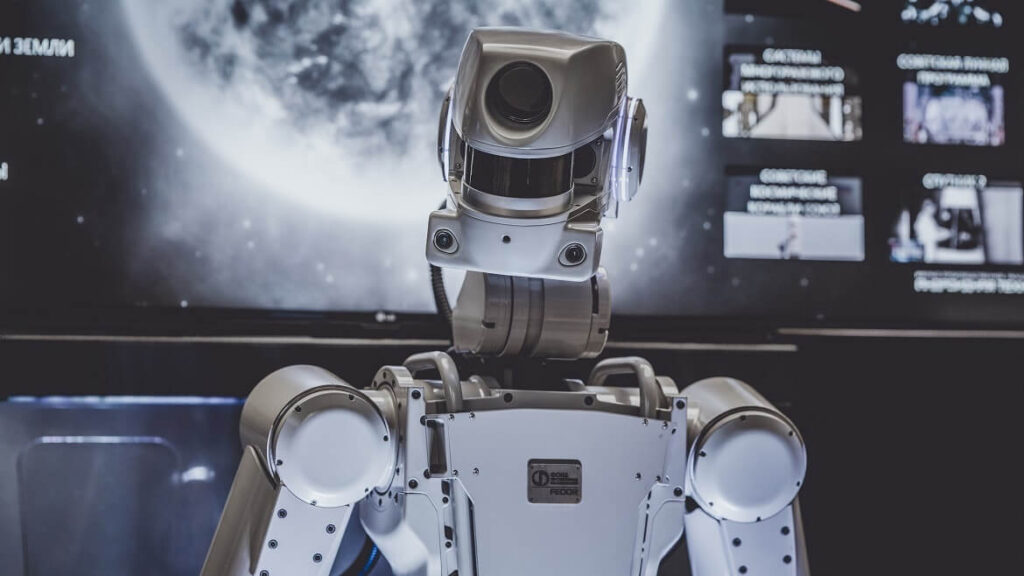Next generation world may face in-depth NEO-TRADITIONAL threats, which will be more vulnerable and destructive as compared to nuclear biting. Yes…! The world is moving forward profligately towards the “AI” era. “ Rana Danish Nisar”
The birth of artificial intelligence (AI) marks a watershed moment in technological history, altering how humans perceive and interact with their surroundings. This article comprehensively explores the entire spectrum of AI’s development, ranging from its historical origins to its current uses, societal effects, and difficulties.

While the formal establishment of artificial intelligence occurred in the mid-twentieth century, its roots can be traced back to ancient philosophy. Retrospectively examining the inception of AI, which commenced with the Dartmouth Conference in 1956 and extended to the initial stages of symbolic cognition, demonstrates the continuous enhancement of AI. Machine learning is the fundamental basis of AI, as it empowers computers to acquire knowledge from data. The advancement of machine learning methodologies has had a significant influence on artificial intelligence.
The approaches of rule-driven systems and deep learning architectures have been crucial in the progress of advancements in these fields. The advancement of AI is intricately linked to the flourishing of technology. The growth of artificial intelligence has been rapid and exponential, driven by advancements in algorithms, the availability of large amounts of data, and significant improvements in computing capacity.
AI is being utilized across many areas such as manufacturing, media, healthcare, and finance. Computer vision, natural language processing (NLP), and predictive analytics are among the many possible uses that extend beyond self-driving cars. Machine vision and image identification, two disciplines of artificial intelligence, have brought about a significant transformation in various sectors such as autonomous vehicles, medical imaging, and facial recognition systems.
The ability to accurately interpret observable data is a substantial improvement. Computers are able to generate, decipher, and understand human speech thanks to natural language processing. Natural language processing has transformed human-computer interaction in three areas: language translation, sentiment analysis, and virtual assistants. The widespread adoption of autonomous driving systems is closely linked to the progress of artificial intelligence. Autonomous artificial intelligence (AI) applications, such as self-driving cars, drones, and industrial robots, are enhancing the skills of machines in domains where human presence is not urgently required.
The significance of societal issues is increasing in tandem with the broad adoption of artificial intelligence. The vital necessity for ethical development and implementation of AI is underscored by concerns over algorithmic bias, employment displacement, privacy, and accountability. The influence of artificial intelligence in diverse fields, including healthcare, education, and collaboration, is significant. To evaluate the societal impacts of AI, it is essential to have a comprehensive understanding of how it affects all aspects of human life.
The utilization of artificial intelligence expedites the generation of novel concepts by streamlining research and development procedures. The ability to analyze vast amounts of data greatly accelerates research, drug discovery, and progress in several scientific fields. As AI continues to advance, global collaboration and competition are becoming more accessible. The pervasive influence of technological dominance impacts the functioning of politics, as nations endeavor to achieve superiority in the realm of artificial intelligence research and development.
An essential task for forecasting the future of AI is to analyze the advancements in explainable AI, quantum computing, and AI integration. It is imperative to adopt a forward-thinking approach while strategizing the trajectory of AI advancement. Increased collaboration between humans and AI is expected to transpire in the future. To achieve both societal well-being and the development of people’s skills, it is necessary to engage in careful strategic planning, promote effective multidisciplinary communication, and uphold rigorous ethical standards. Nevertheless, artificial intelligence continues to face certain challenges, despite its immense potential to transform society. It is imperative to conduct comprehensive investigations and establish regulations to address the potential issues of algorithmic biases, job displacement, security breaches, and misuse of AI technologies.
As previously said, it is important to note that AI has transformed into a formidable force capable of modifying global and regional security dynamics. Although AI has numerous beneficial uses, it also poses substantial difficulties and risks to both traditional and nontraditional security. So, this article explores the synergistic impacts and complexities arising from the convergence of artificial intelligence (AI) and global security, refraining from explicitly specifying any particular subjects. It focuses specifically on the ways in which AI poses a danger to many realms of safety.
Individuals with criminal intent can exploit weaknesses in AI systems by utilizing any technology that lacks sufficient protective measures. Interconnected AI networks facilitate hackers’ access to sensitive information and vital infrastructure with greater ease. The development of autonomous weapons systems utilizing artificial intelligence gives rise to ethical and safety apprehensions. Possible consequences of using these weapons in armed contexts without adequate safety measures include unforeseen effects, heightened hostility, and a lack of supervision.
Almost all contemporary surveillance systems integrate some type of artificial intelligence, enabling the gathering and analysis of vast amounts of data. The pervasive monitoring of individuals increases the accessibility of their personal data, causing concern due to the potential for misuse and violations of human rights. The utilization of robots and other types of artificial intelligence holds the capacity to substantially diminish employment prospects throughout various sectors. This economic impact on social security could lead to a deterioration of disparities and a general decrease in people’s well-being, potentially affecting their overall happiness.
Due to the fact that AI systems acquire knowledge via training data, the outcomes they generate can exhibit bias. Within the domain of security, AI systems that lack balance possess the capacity to engender inequitable surveillance, target particular groups for persecution, and worsen pre existing disparities in society and the economy. Artificial intelligence algorithms can be utilized to generate a range of deceptive information, such as deep-fakes, which convincingly simulate authentic content. Abusing this authority can result in the spread of inaccurate information, the intensification of conflicts, and the instability of specific areas.
The potential for international conflicts regarding AI has the capacity to worsen pre-existing global crises. The presence of economic and technological competition may result in a race to develop AI weapons, thereby hindering global security endeavors and diplomatic undertakings. AI threats pose a significant threat to critical infrastructure such as transportation networks and electrical grids. Disruption of these systems might potentially jeopardize critical services and have repercussions on both regional and global security.
The absence of well-defined international regulations on the development and implementation of AI in security-related contexts may lead to uncontrolled harmful behavior. The absence of a universally applicable framework has the potential to further escalate the already precarious degree of disorder in the domain of artificial intelligence. Artificial intelligence programs that depend on historical data and predictive models may inadvertently engage in actions when confronted with intricate security measures. Unforeseen occurrences such as these have the capacity to provoke individuals and instill a sense of insecurity. Excessive dependence on AI decision-making by security agencies may undermine public confidence.
If AI systems make erroneous decisions or errors, it could lead to a loss of public trust in the government, military, and security organizations. While artificial intelligence was first created for civilian applications, it possesses the capacity to be harnessed for malevolent or military intentions. There is concern that AI, due to its dual nature, will be used to tackle non-traditional security problems. The process of constructing and utilizing artificial intelligence (AI) systems consumes a significant amount of energy and has detrimental effects on the environment. If individuals do not demonstrate concern for the environmental repercussions, climate change and resource insecurity have the potential to escalate significantly.
Due to the increased accessibility of AI tools, there is a higher probability that non-state actors, including terrorist groups, may obtain them. The utilization of AI by these groups could potentially worsen security concerns and intensify efforts in combating terrorism.
We are facing a pivotal time in the course of human history, as artificial intelligence profoundly influences the operations of governments, corporations, and the everyday lives of individuals. Prior to advancing, it is crucial to possess a comprehensive understanding of the historical context, current uses, and possible future advancements of artificial intelligence (AI).
In order to fully leverage the potential of AI for the collective advantage, as we go towards a future dominated by AI, it will be imperative to thoroughly analyze scientific and ethical considerations from various viewpoints. AI has numerous interrelated detrimental effects on both regional and worldwide security. In order to effectively solve these difficulties in security-related contexts, it is imperative that we set aside our divergences, engage in cross-border collaboration, and build unambiguous protocols utilizing AI technology.
The international community should exercise prudence and take proactive measures to safeguard regional and global security while engaging with the intricate domain of artificial intelligence.
Author: Rana Danish Nisar – International Independent Security, Defense, Military, contemporary warfare and Digital-International Relations analyst.
(The views expressed in this article belong only to the author and do not necessarily reflect the editorial policy or views of World Geostrategic Insights).







